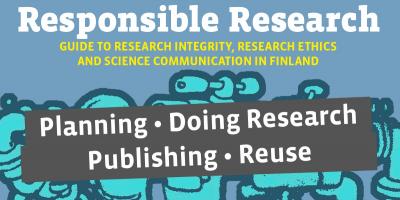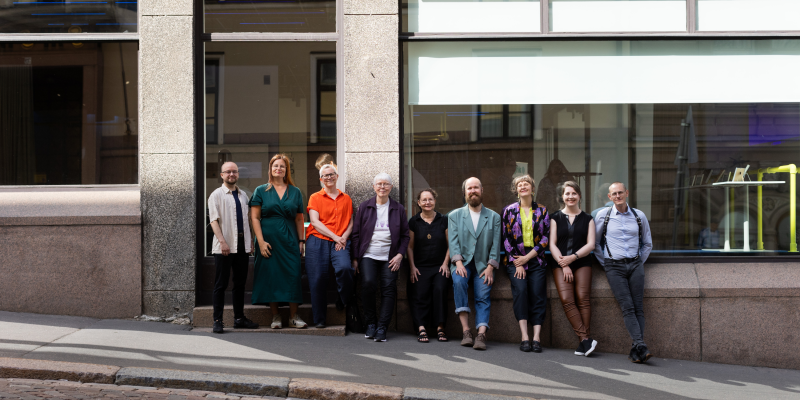In commissioned research, the interests of the scientific community and the business world may pull in different directions, and it is vital to agree on these in advance.
The open and public nature of research is a central principle of conducting science. This principle should be upheld and its importance emphasised in different contexts. When research is commissioned, this principle may sometimes come into conflict with the goals of the client. However, interests can be harmonised by agreeing matters openly in advance.
Science belongs to everyone and the aim is to improve the impact of science through openness and publication. This particularly concerns publishing research findings such that as many people as possible have free access to them. The open and public nature of science is of great importance in guaranteeing that science and the scientific community strive for objective, critical and replicable science and also act as self-correcting institutions.
Commissioned research
On the other hand, the research community is entering into collaboration with various organisations in the business community to an increasing extent. Commissioned research is one key form of such collaboration. Commissioned research is business conducted by universities and, in most cases, it involves applied research or product development work ordered by a client regarding their product.
The client commissioning the research usually sets requirements regarding rights of ownership to the research data and material produced and regarding publishing rights. Here the differing interests of science and the scientific community and the world of business may pull in different directions.
Agreeing matters openly and collaboratively before carrying out commissioned research is the best means of harmonising the differing interests of the scientific and business communities.
Business organisations may seek to keep research findings secret at least until the intellectual property rights associated with them are protected in the best possible way. If, for example, the research leads to an invention which can be patented, publication prevents awarding of the patent because following publication the invention no longer meets the criterion of novelty under patent law. Thus, the invention cannot be protected by being granted a patent. From the point of view of the client, the research they commissioned will thus have lost its intended value. On the other hand, the researcher conducting the research is usually under pressure to publish scientific findings and here different understandings may arise as to when, how and in what form publication can take place.
Open agreement in advance is essential
In harmonising the above interests, it is essential to have an extremely open and constructive collaboration between the researcher actually conducting the research and the client who commissioned the work. It is possible to enter into either a commissioned research agreement or a separate confidentiality agreement regarding this collaboration. Specific agreement should be reached on what is to be kept confidential and what can be published and when.
It is usually also agreed that the researcher will send material to be published to the client who commissioned the research, who has the right to oppose publication for a limited period. It may be agreed that acceptable reasons for opposing publication are, for example, situations in which publication would cause the client’s confidential information to become public or where publication would prevent the client from otherwise protecting their rights to the research findings. The parties may negotiate on how material for publication is to be modified to avoid such situations.
Publication may also be delayed such that it takes place only after a particular period of time and during this embargo period the client has sufficient time to protect the research findings, for example by applying for protection guaranteed by intellectual property rights.
Agreeing matters openly and collaboratively before carrying out commissioned research is the best means of harmonising the differing interests of the scientific and business communities. Thus, both parties involved in commissioned research, i.e. the producer of the research and the client commissioning the research, are able to complete their own task without ignoring the interests of the other party.
Perttu Pohjola is a legal counsel working for Research Services at the University of Helsinki
Further information:
Kiuru, Essi & Koponen, Sanna 2001. Sopimukset yliopistojen tutkimustyössä. University of Oulu, Training and Research Services.
Act on the Right in Inventions made at Higher Education Institutions (19.5.2006/369): https://www.finlex.fi/en/laki/kaannokset/2006/en20060369
Patents Act (15.12.1967/550): https://www.finlex.fi/en/laki/kaannokset/1967/en19670550
Saarnilehto, Ari & Edelman, Tom (eds.) 1998. Tutkimussopimus. Werner Söderström Lakitieto Oy.
Tutkijoiden ja elinkeinoelämän väliseen yhteistyöhön liittyviä eettisiä kysymyksiä ja ongelmia pohtineen työryhmän (TEKO) muistio, 2001 (Memorandum of the working group on ethical questions and problems associated with collaboration between researchers and the business community, in Finnish only): http://www.tenk.fi/sites/tenk.fi/files/teko_12.1.2001.pdf
You might also be interested in
Tämä teos on lisensoitu Creative Commons Nimeä 4.0 Kansainvälinen -lisenssillä. Detta verk är licensierat under en Creative Commons Erkännande 4.0 Licens. This work is licensed under a Creative Commons Attribution 4.0 International license.


